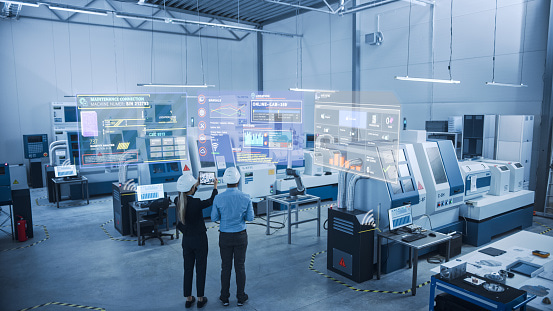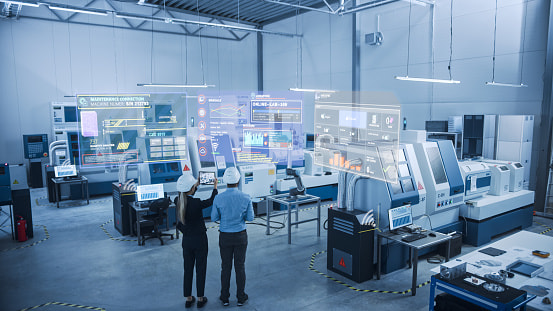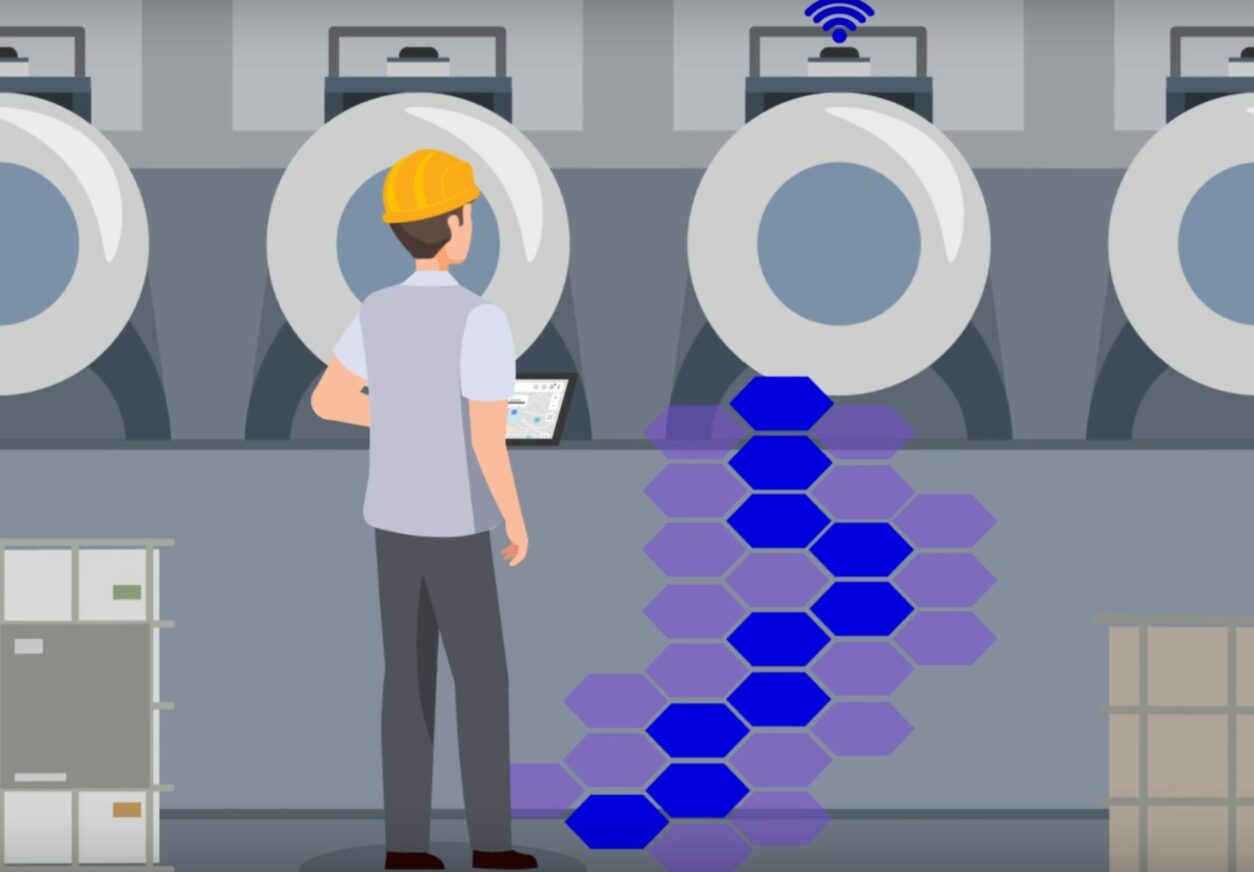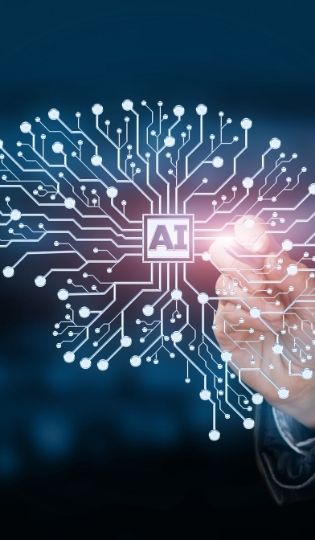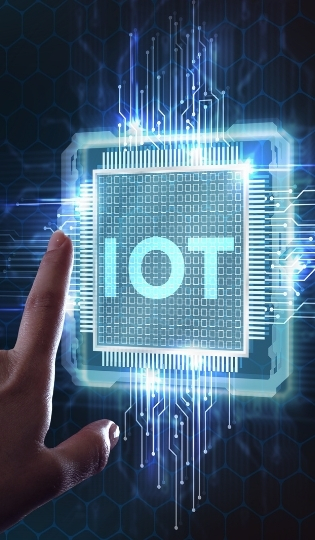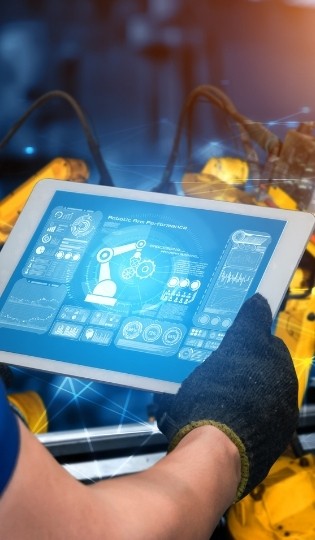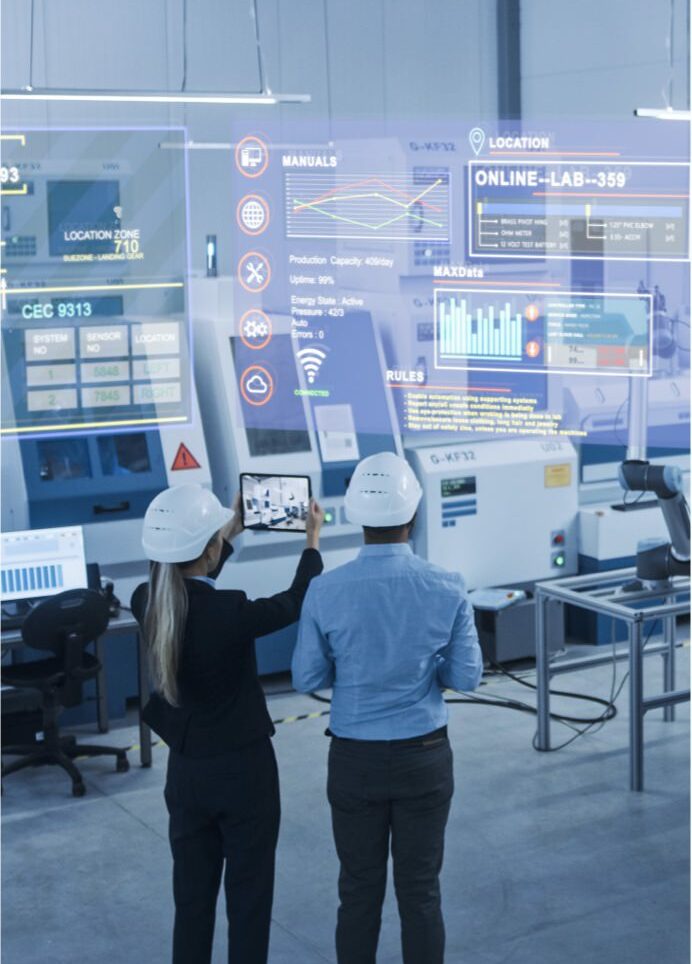Digitalisation and Artificial Intelligence for Industry 4.0
The fourth industrial revolution, or Industry 4.0, has been made possible by the digitalisation of companies. Indeed, the shift from traditional methods to digital solutions has totally transformed the way companies operate, by introducing technology at every stage of the production process. Nowadays, process optimisation through artificial intelligence is common practice in industries and allows a significant improvement in overall performance.
Digitalisation and artificial intelligence: definitions
In this article, we will explain the consequences of this digital transformation, as well as some of the digital tools that have become essential in business. But first, what is digitalisation?
Digitalisation is a process that aims to transform traditional processes through digital technologies in order to make them more efficient. For example, shops have been replaced by web shops or trade fairs by web forums. Its meaning is intrinsically linked to that of digitalisation.
Digitalisation is based in particular on the IoT (Internet of Things), which makes it possible to monitor machines remotely or carry out predictive maintenance.
Artificial intelligence, on the other hand, consists of implementing technologies that enable machines to emit a form of real intelligence.
A digital transformation essential to companies
Digitalisation and AI have revolutionised the industry by making the digital transformation of companies possible. This digital transformation is now essential to face the competition and to be able to claim important growth.
It allows the elimination of spatial and temporal barriers, making it possible to communicate with all employees at any time, even if they are in other countries. It is possible to communicate with your entire team as if you were working in the same space, even if you are on the move, thanks to the mobile connection.
How to digitise your business?
To digitise your business, you need to use the digital tools available to you, such as websites, mobile applications, business software and newsletters, to digitise the entire business and its management.
Depending on the nature of your industry, it may be appropriate to implement these tools:
- Visual identification: visual identification tools are very useful to quickly access the technical data sheet of an identified piece of equipment. In this case, AI allows for better stock management, to quickly order the necessary parts and to access maintenance procedures.
- Connected objects: they can drastically improve the daily life of company employees. Among the most widely deployed connected objects are :
-
- Markers and probes: they are useful for checking the freshness of a fresh product or the filling of a skip, for example,
- Bluetooth tags: very useful in warehouses, they allow equipment to be geolocated.
To integrate digital transformation into the industry, it is also imperative to incorporate a digital culture within the teams and to practice change management, so that all employees are involved in Industry 4.0.
Industry and the environment: digitalisation for a greener company
One of the main objectives of our century is the decarbonisation of industries. Digitalisation and artificial intelligence are very promising tools for achieving this objective. Indeed, certain digital tools can reduce energy consumption or allow a reduction in the need for materials and therefore promote a reduction in waste.
These tools include, for example :
- Digital simulation: this enables the energy needs of the various processes in the factory to be assessed upstream in order to identify possible losses and thus optimise consumption.
- Measurement sensors: thanks to the data they collect, it is possible to visualise precisely and over time the consumption and emissions associated with the various stations in the production chain. In the long term, this makes it possible to improve the energy management of high energy-consuming stations.
- Predictive maintenance tools: these make it possible to predict system failures before they occur and thus to better maintain equipment, which lasts longer.
- Business intelligence software: this enables better management of resources, thus helping to reduce waste and recycle materials.
Conclusion
As these tools allow for greater reactivity and flexibility, while reducing production and delivery times, there has also been talk in France in recent years of industrial relocation. Indeed, the advantages of relocating companies to countries where labour is cheaper have been called into question since the appearance of 4.0 factories. This relocation contributes to the decarbonisation of industries, by encouraging shorter circuits.
Written by Emma Guignard
